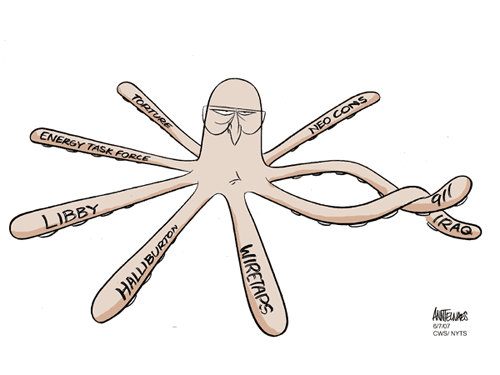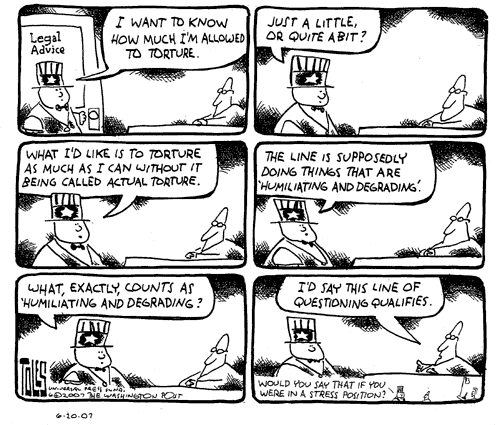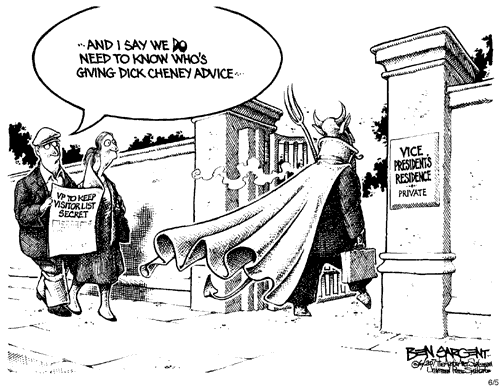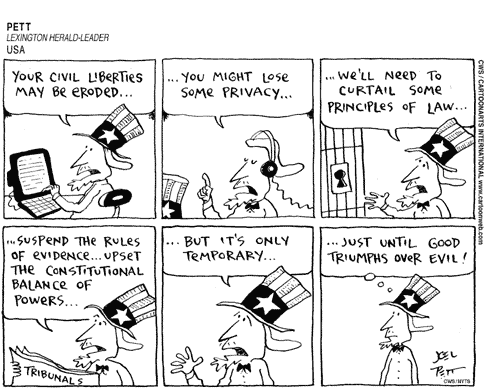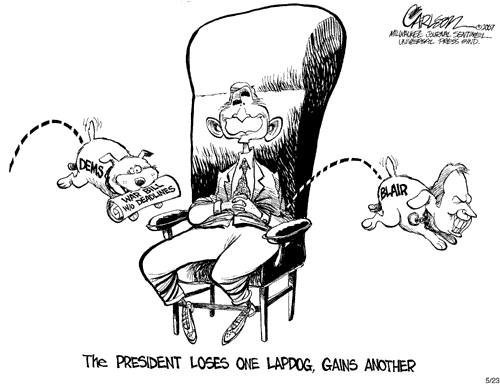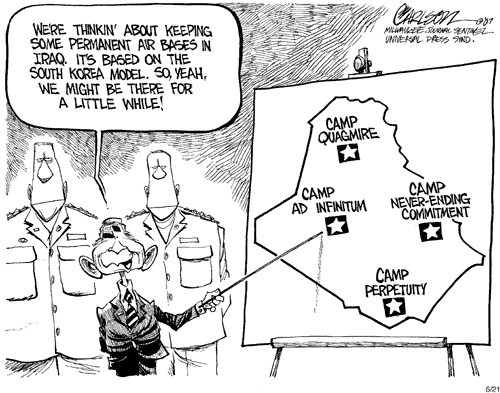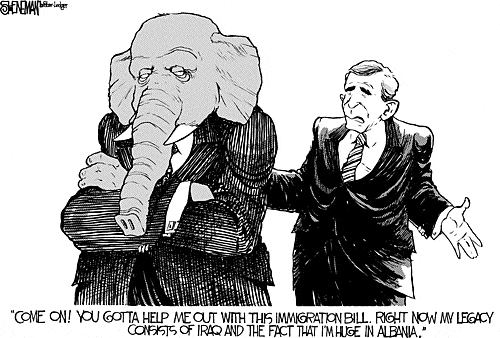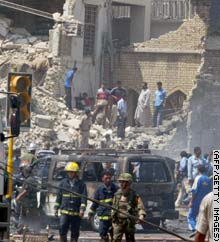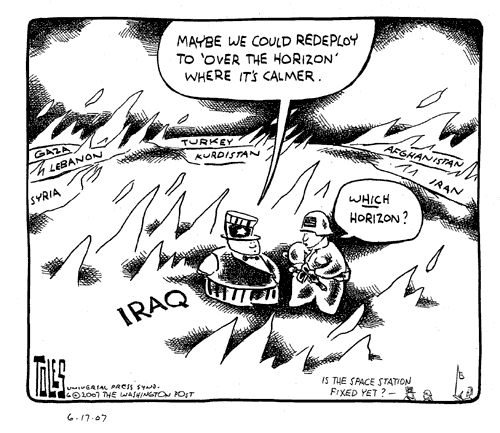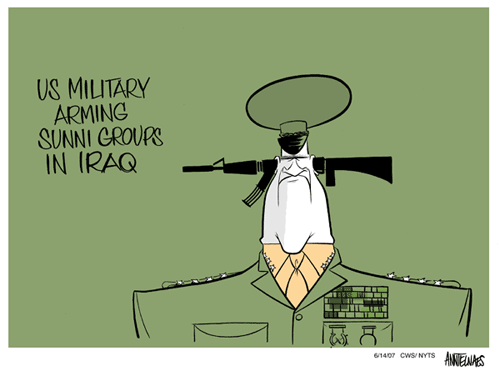
Ali Yussef/Agence France-Presse-Getty Images
On May 13, students walked around large barriers of concrete placed around Mustansiriya University to protect against car bomb attacks. The university has been the target of a number of such attacks.
June 5, 2007
Cheated of Future, Iraqi Graduates Want to Flee
By DAMIEN CAVE
BAGHDAD, June 4 — They started college just before or after the American invasion with dreams of new friends and parties, brilliant teachers and advanced degrees that would lead to stellar jobs, marriage and children. Success seemed well within their grasp.
Four years later, Iraq's college graduates are ending their studies shattered and eager to leave the country. In interviews with more than 30 students from seven universities, all but four said they hoped to flee immediately after receiving their degrees. Many said they did not expect Iraq to stabilize for at least a decade.
"I used to dream about getting a Ph.D., participating in international conferences, belonging to a team that discovered cures for diseases like AIDS, leaving my fingerprint on medicine," said Hasan Tariq Khaldoon, 24, a pharmacy student in Mosul, in the north. "Now all these dreams have evaporated."
Karar Alaa, 25, a medical student at Babil University , south of Baghdad , said, "Staying here is like committing suicide."
The class of 2007 came of age during a transformation that according to students has harvested tragedy from seeds of hope. They are the last remnants of a middle class that has already fled by the tens of thousands. As such they embody the country's progression from innocence to bitter wisdom amid dashed expectations and growing animosity toward the Americans.
They said would leave their country feeling betrayed, by the debilitating violence that has killed scores of professors and friends, by the growing influence of Islamic fundamentalism and by the Americans, who they say cracked open their country, releasing spasms of violence without protecting the moderate institutions that could have been a bulwark against extremism.
"I want to tell them thanks for liberating us, but enough with the mistakes," said Abdul Hassein Ibrahim Zain Alabidin, a Shiite Turkmen studying law at Kirkuk University , in the north. The errors, he said, "led to division and terrorism."
Iraq's roughly 56,000 graduates began their college careers under far different circumstances. With the world's strongest power expected to democratize and modernize their country, they said, they felt special, chosen, about to be famous on the worldwide stage.
"I thought we would be like stars," said Ahmed Saleh Abdul Khader, 21, a biology student in the southern city of Basra .
"I was thinking that Iraq would be like Las Vegas , especially Kirkuk , which has oil," Mr. Alabidin said. Instead, after an initial period of hope after the overthrow of Saddam Hussein's government, the students said they watched in awe as Iraq 's underlying sectarian and ethnic conflicts emerged and flourished.
At the country's 21 universities, the decline started with chaos. Looters stole ancient artifacts and destroyed buildings at Basra University , for instance, only days after British troops reached the area in 2003.
Violence followed. In June 2004, a geography professor at the University of Baghdad was killed after leaving the campus. He would not be the last.
"We've lost over 200 professors, being killed," said Abed Thiab al-Ajili, Iraq 's minister of higher education. "A number of others have been kidnapped."
Scores more have fled, he said, leading the perpetually upbeat Mr. Ajili to spend much of his time trying to persuade those still here to stay. It is a particularly difficult task; in November, dozens of ministry employees were kidnapped in broad daylight by gunmen wearing police uniforms.
"I'm not going to say we are in a good position," Mr. Ajili said. "We are surviving. We are trying our best to have an educational system to be as good as we can."
Students said Iraq 's university system had significantly declined, dragged down by chronically canceled lectures and decrepit equipment, all in an atmosphere of growing terror and violence.
Mr. Alabidin said his class of law students in Kirkuk had shrunk to just 30 at graduation, from 85 in 2003, because of the bloodshed and fear. He acknowledged that more Shiites were entering college than before. He was even one of the students who said he did not plan to leave, declaring that "I am no better than those who have suffered or been killed."
But he could not contain his frustration with the country his class would inherit. He said he and his friends constantly discussed "the ugliness of terrorism, the free-for-all of killing in Iraq, Americans' mistakes, the way they humiliate Iraqis, the shameful stance of neighboring countries and the loss of the Iraqi identity to divisions by sect and ethnicity."
"I blame Saddam because he sold Iraq and was behind the coming of the occupiers," Mr. Alabidin said. "I blame the American administration for its mistakes in dealing with Iraqis."
The mood was even darker last week at Mustansiriya University in Baghdad . In January, two car bombs and a suicide bomber killed at least 70 people at the school. A month later, a woman laced with explosives blew herself up at the university entrance, killing 40 more.
In the immediate aftermath of the attacks, charred metal, bloodied notebooks, glass, fingers and makeup cases littered the ground. Students later buried the detritus of the attack in a courtyard where they regularly gathered.
The memorial, a mound of dirt with banners containing the names of those who died, now acts as a constant reminder of the horrors this year's graduates have endured.
"We even have a mass grave now in the university," said a student who would give only his first name, Saif, for fear of retribution. "Imagine flesh and body parts — we buried that here at Mustansiriya University . Imagine how bad our situation was."
Several students about to graduate said the attacks had only hardened their resolve to complete their studies. Indeed, at a number of universities in Baghdad the class of 2007 has tried to make the best of a difficult situation.
At a graduation party at the University of Technology here in April, students sprayed silly string on each other near cardboard simulations of mortar tubes and rockets — macabre parodies of Iraq 's situation.
At Baghdad University , students shared jokes about the violence over their cellphones. Graduates from the dentistry department recorded a song with verses that poked fun at each student for his or her quirks.
Three of the song's subjects, Mudher Rafid, 22, Ahmed Bahir, 22, and Hasan Haitham, 22, said humor had helped them stay sane through the chaos. On a recent afternoon in eastern Baghdad , speaking English well and wearing T-shirts with brand names like Diesel and Ecko, they said they wished the world would remember that not all young Iraqis wanted to kill one another.
They acknowledged that some of their classmates supported jihad against Americans as part of what they called "the resistance." But they said most Iraqi college students did not participate, because they wanted the same things every student wants: a job, a family, a little fun, the opportunity to look cool.
Iraq, Mr. Rafid said, "is like any other country." Then he caught himself. "Well, the bombings aside," he said, "it's just like any other country."
In fact, he and his peers risked their lives to complete their studies.
Mr. Haitham, wiry and soft-spoken, with sensitive eyes, enrolled at Mosul University but transferred to be closer to his family. In Mosul , he said, his car was shot full of holes on his way to and from class. Baghdad is not much better, he said: on some days his mother has seen bodies in the road seconds after dropping him off.
"I had a plan one day to have a wife and kids and my own dental clinic," he said. "They were good dreams. They're gone."
For most of the past four years, he said, his schedule has been limited to attending school and returning home. His dentistry class has shrunk to 200 students from 315. A Sony PlayStation soccer game — "a single-player game," he said — has often been his only companion.
For Mr. Haitham and his classmates, the decision to leave Iraq was confirmed by an attack on campus in April. Just before 8 a.m., with a lesson just beginning, a bomb exploded in a locker.
Mr. Haitham rushed to the scene and saw a student lying flat on the ground. When he put his hands under the victim's back to carry him to safety, he felt shrapnel and mangled flesh. The blast had torn through the student's organs from behind.
"He couldn't breathe, but he was still alive," Mr. Haitham said, adding, "We carried him to the doors of the college, where he died."
Another student, the son of a government minister, appeared to have been the target of the attack. He lost four toes.
The explosion altered the class's plans. University officials canceled a graduation party, fearing more violence. The students were granted one concession: they could take a class photo. At the event last month, their proud parents snapped pictures as they held up a poster of the student who had been killed. Most mothers and fathers looked relieved to see their children graduating.
The wounded student and his family did not attend. It was unclear if he would be able to finish his studies.
"He had just a few days to graduate," Mr. Rafid said, "and they took all this away from him."
Mr. Rafid said the decision to leave Iraq was wrenching but unavoidable. "This is my country," he said. "Of course I will feel sad to leave my family and my friends who cannot go with me somewhere else. But it's my security. It's my life. I think after what I saw, there is no more future here."
Ahmad Fadam and Diana Oliva Cave contributed reporting from Baghdad, and Iraqi employees of The New York Times from Baghdad, Hilla, Kirkuk, Mosul and Basra .
| 
| 
|
| 
| Kareem Raheem/Reuters
Men carried a student at the economics and administration college of Mustansiriya University in Baghdad who had been wounded in a suicide bomb attack in February.
|


